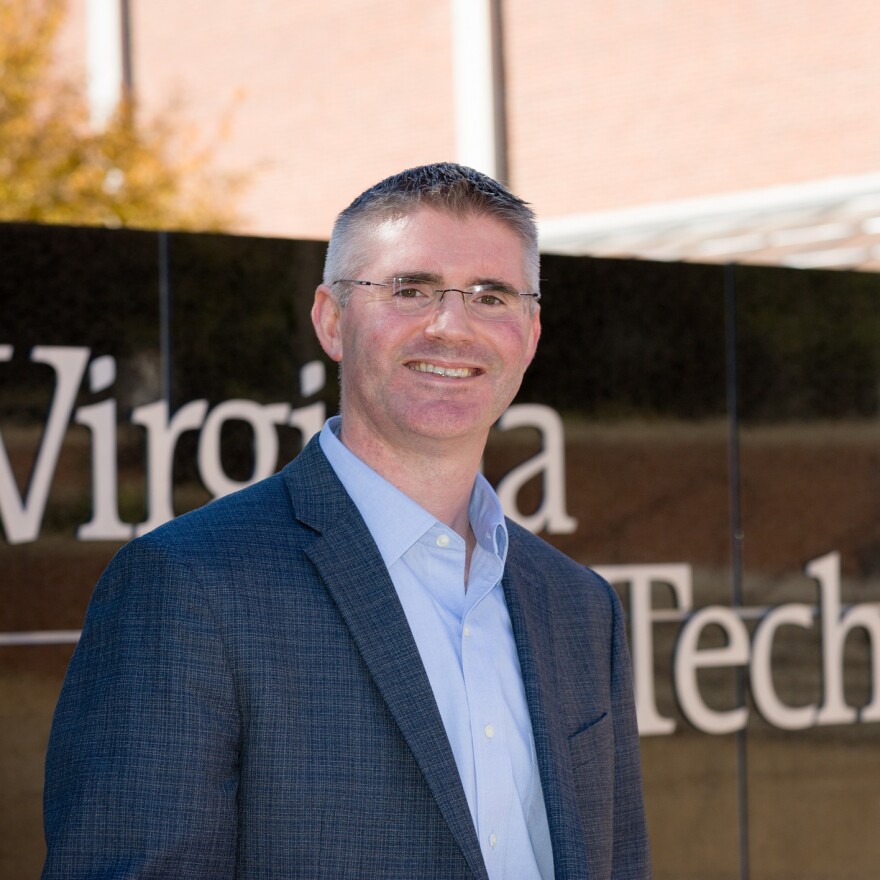If you have a college student in the family, chances are he or she is back home this week for Thanksgiving. But how is your student eating while on campus? Studies show that the problems of hunger and food insecurity on campuses are getting worse, and local colleges and universities are responding. WMRA’s Jason Barr reports.
It’s around lunchtime at Blue Ridge Community College, and students are buying snacks out of vending machines, microwaving meals brought from home, or purchasing hot meals. But U.S. News and World Report notes that changing demographics and rising food costs mean that grabbing a bite to eat is becoming more difficult. A recent report from The New York Times indicates that more than half of all college students are “food insecure.”

ROBIN HAWKS: Food insecurity is a student who may not have the adequate amount of food on a daily basis or may not have the adequate amount of food on a monthly basis.
Dr. Robin Hawks is a professor at Blue Ridge Community College and oversees the grant-funded Lunch2Go program on campus.
HAWKS: What we find is that students oftentimes come to us when their money has run out for the month, and that's when they recognize that they have a problem because they can't feed themselves for the rest of the month. They've used up all of their allotment of cash for groceries. And so now they're in more of a crisis situation.
Food pantry programs on campus can help, but Hawks notes that comes with numerous challenges.
ROBIN HAWKS: Last semester, we didn't advertise very much because we were trying to work out all the kinks. You know, how do we store the food? How do we do inventory? All of the issues around running a lunch to go program.
But it’s not just community colleges that are seeing increases in food insecure students. It’s the bigger universities, too. Jeremy Hawkins is the Assistant Director of Off-Campus Life at James Madison University. He’s spearheading an effort to start a food pantry on JMU’s campus in January 2020.

JEREMY HAWKINS: There is kind of a preconceived notion that, you know, the college experience should be one of struggle for students. And so like eating ramen is just what you do as a student. You know, like you might not be hungry if you're eating ramen three times a day. But is that giving you the nutrition you need to be academically successful? And, you know, we would argue that it's not. And so we want to make sure that we're providing a nutritious source of food for students as well that is consistent and available.
Dr. Ralph Hall, an associate professor in the School of Public and International Affairs at Virginia Tech, is the principal investigator of a study examining hunger on campus. He agrees that there’s a misplaced stereotype of the struggling college student, and he cites as an example his dad’s experience in college in England.
HALL: I think my dad said he had soup and put peas in the soup and then had biscuits. That was his dinner. You know, and then the penny dropped. And he was like, well, maybe I wasn't having a nutritious diet. I wonder if that impacted my grades.
For many campuses, food pantries are a new way to increase student retention rates—that is, another way to keep students enrolled in classes and successful.
HAWKS: We cannot really expect our students to come here and progress if they have these kind of issues hanging over their head.
HAWKINS: I think there is a lot of conversation about that and higher ed and there is some research out there now that is kind of like return on investment as far as, you know, the money that you were spending to make sure that your students are secure, you know that they have their basic needs covered in the long term equates to retention rates for students.

Ultimately, one of the best ways to address the issue may just be shattering perceptions of the older generations of college students from past decades.
HALL: Well, it was like this in my day, we should just keep going like that. And then when they understand that could be a connection to their performance, educational attainment, they may rethink that, you know?


